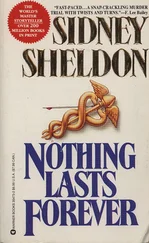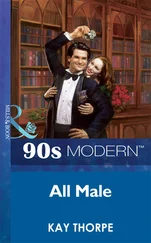"I should have taken scalps," Leland said sourly.
"It ought to be said here that this is not a pretty piece of tape, so viewer discretion is advised..."
Tape of the street now: with slightly more light, it was possible to see bullets striking the walls and sidewalks. A long, long shot of empty sky, with a bit of the Klaxon roof coming into view. The helicopters appeared as spots growing larger. It took Leland a moment to get his bearings. He was out of the picture, to the left, and from this distance, his contribution, such as it was, would not even register. One after the other, the police helicopters exploded. None of the cameras was even trained in his direction.
"Now comes word from the police asking all those persons here in the Los Angeles area to stop, repeat, stop, jamming the forty Citizens Band channels. You will recall that Leland asked the mysterious Taco Bill to jam one of the channels on which the German language transmission had been heard. While no one knows exactly what did happen to Leland, there is no evidence of his death. He is not in view on the roof. Repeating: the police want the persons jamming..."
Leland changed the channel. A blonde woman in a blue housecoat watching herself on a television screen. Kathi Logan — with her hair down to her shoulders, Leland almost did not recognize her. A microphone appeared at her shoulder.
"Did you see anything?"
She leaned toward the microphone to speak. "No."
"What do you think?"
"He told me not to worry. I think he's alive. I've only known him a short period of time, but he's a very special man."
"He said he was going to do his duty," the reporter said with apparent amusement. Kathi Logan kept watching herself on television.
"Well, he's under tremendous pressure. Normally he doesn't talk like that, but people who know him are aware that he has his own set of rules and he lives by them even when it's very difficult to do so."
"He says he's killed seven people. What are your feelings about that?"
Now she turned. "My feelings are that I hope that God has mercy on their souls, because they'll need it. The man in that building isn't young, and he's alone!"
"If there are television sets in the Klaxon building, he could be watching right now. Anything you'd like to say to him?"
She glared at him. "We just did talk!"
"I mean now, on television, when he can see you. If he can."
"Just that I know that he's right and those hoodlums in there are wrong, and most of the people in this country agree with me. We don't want killing — we don't want to be threatened with machine guns or bombs, ever. We have the right to live our lives in peace, all of us, and we ought to say so. I think most people are like me. What you see is all I have in the world."
The reporter put his hand to his ear, "Uh, thank you. Back to the Klaxon building in Los Angeles."
Another reporter was standing next to a young black man with a badge on his jacket. Al Powell: he looked like a twenty-year-old. Leland smiled. Behind them was a battery of television sets, and Powell was holding a two-way radio. "Thanks, Jim. This is Sergeant Al Powell, pressed into service late last night. You've been actually talking to the man inside, Joseph Leland, haven't you?"
"Yes, but not in the last few minutes." Leland watched Powell's eyes, although it did not seem that Powell was thinking that Leland could be watching him. "We're asking people to stop jamming the CB. The telephones in there are shut down, and CB is his only means of contact with us. This man has been tremendously valuable so far, and we know that if he can continue to help us, he's going to try."
"Now, something came out of one of the windows a little while ago. What was that, a message?"
"No, the wind up there is pretty strong, and with all those broken windows, things are going to come flying out."
"What was the object?"
Al Powell smiled. "Hey, finders, keepers, right? Look at all the terrific television sets I've picked up. Maybe we can work out a deal. Let's see that watch you're wearing."
Leland laughed. The flustered reporter took Powell's cue. "This is your communication center, isn't it?"
"Well, actually it's yours, but we've borrowed it, and the studio has been feeding tapes back to us."
"And?"
"We're using them to gather information."
"You've been to the city engineer's office, too, haven't you?"
"Hey, my wife thinks I've been here all night."
The reporter smiled haplessly. "Sorry. What's the next step?"
"You know as much as I do. The people in control of the building said we would hear from them again at ten o'clock. We'll all learn something then."
Leland was sitting up.
"And that was the only communication from the terrorists?"
"That's it. The one line just a few minutes ago. 'You will hear from us at ten o'clock.'"
"There have been no negotiations, then?"
"With the situation as it is, we're going to have to wait."
The reporter announced a commercial break, and Leland turned down the sound. After the station's holiday greetings, there was a shot of an oil-drilling platform belonging to one of Klaxon's competitors. Leland wanted to go to the window to have a look at what was happening, but now he was afraid that one of the helicopters would spot him and let one and all know he was alive. Powell knew. The note Leland had enclosed in his wallet had asked for the jamming to stop, adding, "Let me make first radio contact with you. The helicopter attack was ineffective — no casualties on the other side."
It looked like the police were beginning to respond to him, but Leland wasn't completely sure. Cause and effect weren't always what they seemed. He wanted the CB transmissions stopped, and the police seemed to be going along — but Leland was following another line of thought now, independent of what he had been putting into events. It had to do with the safe, the hostages, and the building. What if Leland had never gotten here? What if he had called Steffie and taken the plane on down to San Diego?
The television screen was zooming in on an actor portraying a gas station attendant holding a can of motor oil next to his cheek in a way people never held anything in real life. With the fade-to-black, Leland turned the sound up again, while he followed his line of thought. The terrorists would have seized the hostages, secured the building, and gone after the safe, exactly as they had done. Given the power of the plastic explosive and the number of detonators he had hidden, they could have wired the entire building. Suppose they got into the safe? Then? It stood to reason that once they had opened the safe, they were finished with the main business of the operation.
The reporter on the street below was reading from notes he had developed earlier when Leland had identified the people who had taken over the building. Unconfirmed. Leland thought he would lower the next one down in a basket.
These people thought of themselves as commandos, freedom fighters. Having accomplished their mission, they would withdraw. Leland drummed his fingers on the arm of the chair. The television screen showed the building again, blackened and smoking.
You don't blow up a building while you're still in it.
But you can blow it up from a distance with the right kind of transmitter. And if you can threaten to blow it up from a distance, you might be allowed to go on your way.
The gang had enough explosive not just to pulverize Klaxon Oil and the seventy-five people inside it, but everything and everyone for a half mile around. If they left via the roof, up into a helicopter, they would be able to see that their bomb wasn't defused until they were on a jet leaving the airport. Everything was in view here. For all Leland knew, that was the only reason why they had chosen Los Angeles. The police weren't going to be able to get into the building from below, even if they came through the sewers, and the gang knew it.
Читать дальше











